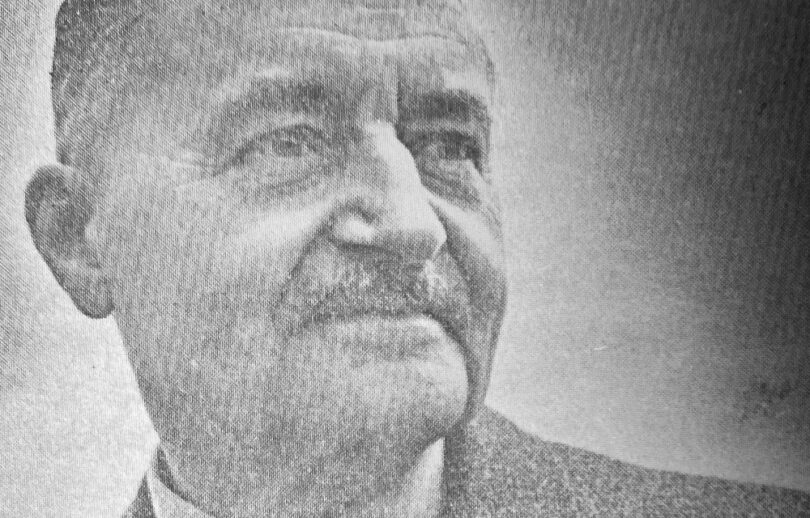Nicholas N. Alexandrov, the first dean of Holy Trinity Orthodox Seminary, passed away on this day in 1970.
In 1935, the North American Metropolia entered into а union with the Russian Church Abroad, which lasted until 1946. In 1938, both St. Tikhon’s and St. Vladimir’s Seminaries were founded. In 1946, within the altered geo-political reality, the North American Metropolia decided to withdraw from this union. In turn, the Russian Church Abroad restored its own diocesan structures in North America.
The Russian Church Abroad in general and in North America in particular needed its own school to train future clergy. Thus, Holy Trinity Orthodox Seminary came into being in 1948.
Nicholas N. Alexandrov was born in 1886 in Russia; he was educated as an engineer and designer of military ships, and was made captain (first rank) in the Imperial Navy. With the end of the Civil War in European Russia, Nicholas N. Alexandrov left Crimea in 1920 with a Marine cadet Corps. He came to the US before World War II and worked as a university teacher in Connecticut.
He was very ideologically motivated in his service to Russia. As soon as the opportunity arose to organize a seminary at the monastery, he left his job at the university and moved to the monastery. Using his extensive connections with US Navy officers, he secured recognition for the Theological Seminary as a college of higher education that could issue bachelor’s degrees on behalf of New York University (the Department of Education).
Classes at the Seminary began on October 1/14, 1948. In 1951, Archimandrite Averky (Taushev), who arrived in the USA from Germany for a solemn ceremony at the Seminary and was appointed as its rector, in his speech defined the tasks of the Seminary: “It is our common duty to remember that the future of our Russian Church Abroad, our long-suffering Russian people, dispersed throughout the world […] largely depends on Holy Trinity Theological Seminary, as our only institution of spiritual education.”
At Holy Trinity Monastery, the pilgrims saw a large, beautiful, white three-story stone library building, which also housed a lecture hall, archive rooms, a museum, and lecture rooms. The funds for the construction of this building were donated by N. and E. Alexandrov – their personal savings. Many books in the library have an imprint stating that they were posthumously donated in memory of E. Alexandrov.
Nicholas Alexandrov readily spoke to all the seminarians about the greatness of the Russian Imperial Navy, about its officers, and about the education of the lower ranks. At the same time, he repeated the words of Peter the Great that Russia needs a powerful navy, without which it could not be a great state, because its goal is to protect the country and its merchant ships.
As he said, being on the ships of the fleet, far from the harmful influence of cities, officers were given the opportunity to educate their crew about their duty to God, the Tsar and their Fatherland. He even used to compare the ships of the Imperial Navy with a monastery, which was also often cut off from the world and also a ship from which prayers were sent out asking for mercy to the Russian people, who were under the heel of the atheistic communist government.
Both monastics and students often saw him in prayer in the cemetery at the grave of his late wife. For hours, he sat on a bench, praying for the repose of her soul, and when I was with him at the grave, I heard him repeating his promise to her: “I will be with you soon! Now we need to finish another academic year at the seminary and send a new class of seminarians to serve God and country.” There, in prayer, he would be considering what to do for the Seminary and how to do it.
Source:
Adopted from Georgii Soldatov, Vospominaniia seminarista o Dzhordanville [A Seminarian’s Reminisces About Jordanville], Part IV Russkoe pole.
Photo: Kratkii istoricheskii ocherk stroitel’stva Sviato-Troitskogo Monastyria [A Brief Historical Account of How Holy Trinity Monastery’s Foundation and Development] (Jordanville, 1978)











